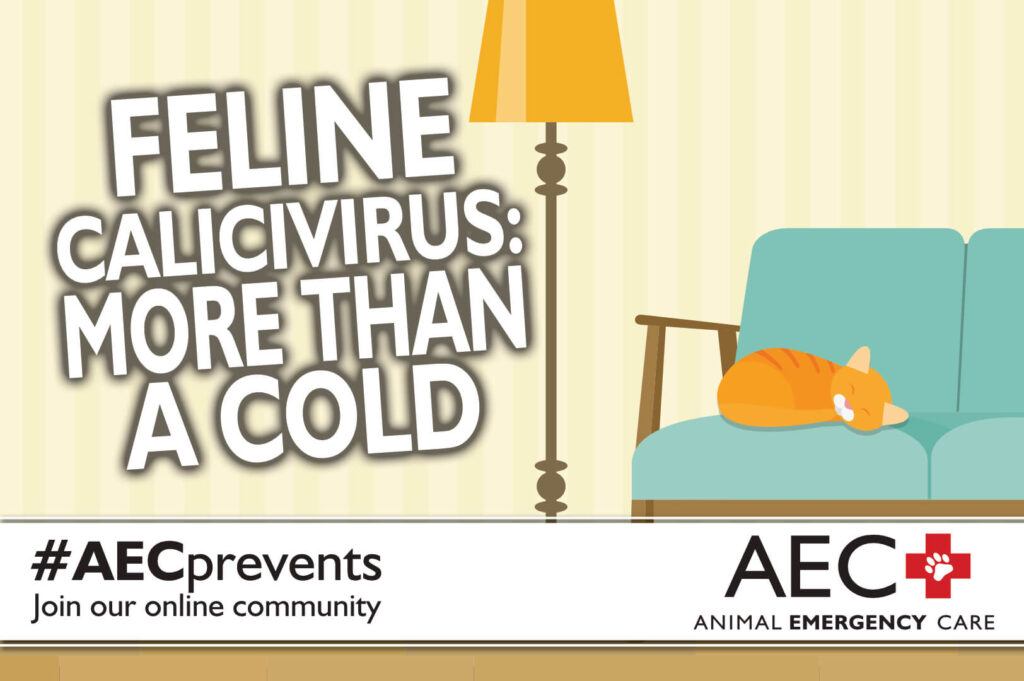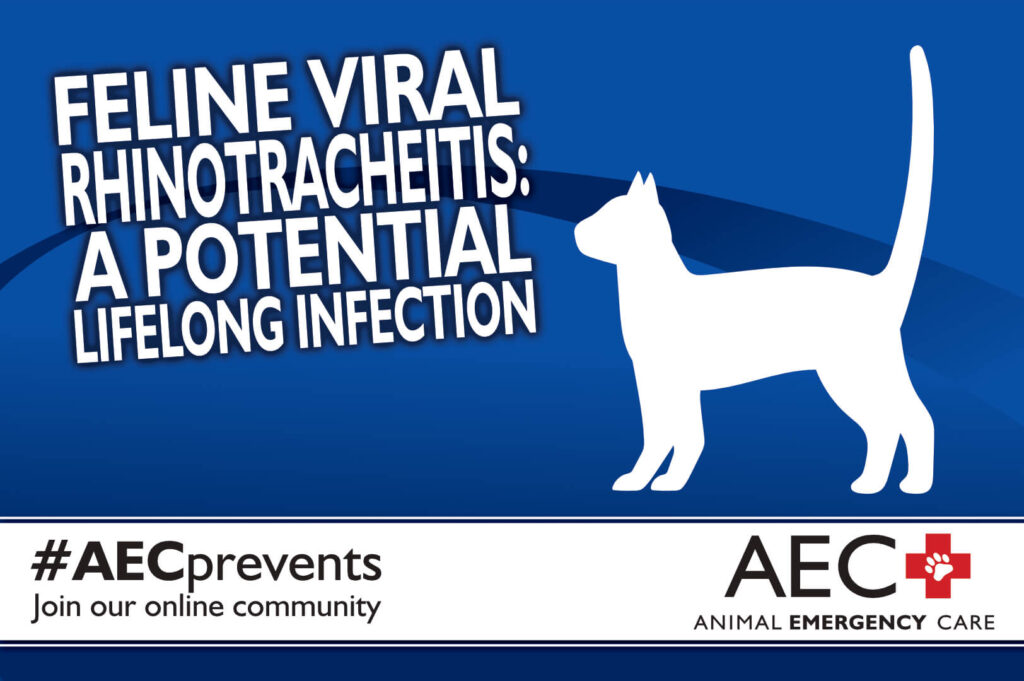Feline Calicivirus: More Than a Cold

A new feline companion in your family is an exciting time, but pet owners must remember a lot about their care. Cats’ independent nature can make them seem as though they do not require a lot of time and energy. However, cats require regular veterinary care, in addition to good nutrition, and proper mental and physical exercise. The first few months are critical to ensure that your new cat is properly protected from common infectious diseases and viruses. Young cats and cats with chronic diseases are at increased risk for respiratory problems because their immune systems are not fully developed or are weakened from disease. Feline calicivirus (FCV) is a common virus affecting cats and our Animal Emergency Care team describes FCV signs, treatment, and prevention.
Feline Viral Rhinotracheitis: A Potential Lifelong Infection

Caring for a feline companion is special, filled with furry cuddles, purrs, and afternoon naps in the sun. Cats are independent with unique personalities, and pet owners know that their feline friend will not hesitate to let them know when they want treats or an extra cuddle. Owners can easily become distracted with cuteness overload when they bring home a new kitten or adult cat. However, ensuring your cat receives regular veterinary examinations and vaccinations, especially during the first few months after joining your family, is critical. Kittens are particularly at risk for respiratory infections, including feline viral rhinotracheitis (FVR), because their immune system is still developing. Our Animal Emergency Care team wants to ensure your cat remains healthy through all their life stages, and we describe FVR signs, treatment, and prevention.

